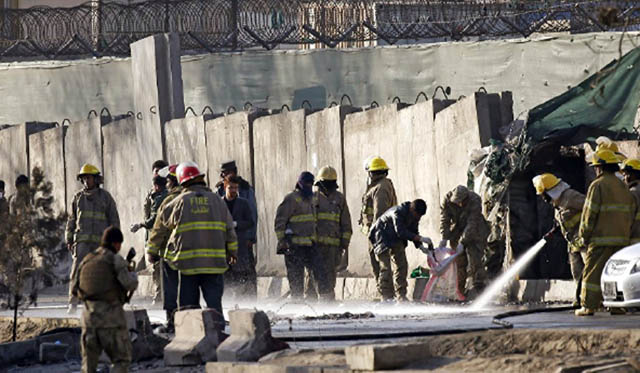The social and political challenges fill the air with a sense of disappointment. Since Afghanistan is embroiled in interminable problems, Afghans, mainly the youths, have no clear picture about their future. The gleam of hope for a better life seems to be declining. The large-scale human rights violation, unmitigated militancy, lack of job opportunities, relentless corruption in judicial system, the fall in cultural values, etc. demoralize the public.
Sob stories, violence against women, carnage and bloodbath, terrorist attacks and so on are the hackneyed phrases which make the headlines in national newspapers. We are alienating from ourselves as the overwhelming violation of rights and horror stories can no more provoke one’s empathy or sympathy. When we see one dying before our eyes or our next-door neighbor is burning in fire, we ignore the incidents. We close our ears to the heart-wrenching voice of an innocent girl asking for help for being tortured in our neighbor’s underground or a mother who mourns over the bloody corpse of her child. All made us stone-hearted is the shocking news being reported frequently and changed into cliché.
When we live in a society where life is cheap and streams of blood is spilt in one way or another, we will lose our concern and we are not to blame. Based on the theory of “social contract”, we established a government and gave all our authorities to have our rights and freedoms protected and to be provided with facilities and social betterment in return. We have committed to live under government’s authority and accept the legal punishment per law of land in case of breaking the law or overstepping from rights and liberty limited on the basis of law. During the election, we flocked to the ballot boxes to cast our votes so as to have our rights ensured through establishing a democratic administration. In another item, despite the potential threats from the militants, men and women made colorful queues before the ballot boxes, in cities and towns, with the hope to heave a sigh of relief under the shadow of democracy.
To their unmitigated chagrin, however, their dreams did not come true. With the multiple crises, the public fluctuate between fear and hope. The brain-drain that our country is wrestling with is justifiable since there is neither security nor job opportunities for the youths. Hundreds of male and female graduate from universities annually, but fail to find a job just to earn their keep. What will be the next option?
There are two options left for the jobless individuals: either to succumb to crime, as the rate of crime has mounted recently, or take refuge to foreign countries. It is believed that the second choice is far better than the first one. If the government wants to decrease the crime rate or prevent from brain-drain, it will have to create job opportunities – this will tackle both the issues in the same time. Hence, the state is not supposed to urge foreign countries to send the refugees back since there are no job opportunities or, at least security, in the country.
Economic constraints are the main reason behind the rise in crime. Rumors say that people are being killed on streets for a very small amount of money. Those who have somewhat better life are either murdered or abducted for their money or at least live in fear. Theft, mugging and robberies have been multiplied in big cities, including Kabul, recently. It goes without saying that financial pressures and unemployment force one to commit crime as the last resort.
What needs to be recognized is that we are not in the grip of one or two problems but suffering a spate of challenges simultaneously. It is believed that since the crises are intertwined dealing with a single issue will not put an end to it. For instance, when the government combats terrorism, at the same time it needs to fight narcotic drugs and administrative corruptions. Narcotic is the mainstay of the protracted war in Afghanistan and the Taliban’s bread and butter. Therefore, it will be hard for the government to bring the insurgents into their knees unless eradicate the narcotic productions. Secondly, the implementation of law is hampered by the corruption going on in judicial system. Based on a source, members of Mafia are released from prisons after greasing the palms of the responsible officials. So, when the law is implemented strictly only on the poor and the rich and the influential commit crime with impunity, the challenges will continue unabated. Kidnapping, as Mafia group is widely involved in it, smuggling drug, bribery and ultimately terrorism will continue. The crises are highly interlinked and one of them breeds the other and the next. Therefore, it is believed that sterilizing the mother will be far effective than fighting the products.
Regarding terrorism, we can simply point finger at our neighbors and the insurgents’ hub outside the Afghanistan’s territory, but what about the smuggling of precious stones, the production of narcotic and the corruption? Don’t all the other issues demonstrate poor governance? Narcotic and Corruption, which lead to the continuation of terrorism and crime, harm our nation – if not greater – the same as terrorism does, don’t they? Such questions always remain unanswered.
Home » Opinion » It Never Rains but It Pours
It Never Rains but It Pours
| Hujjatullah Zia

